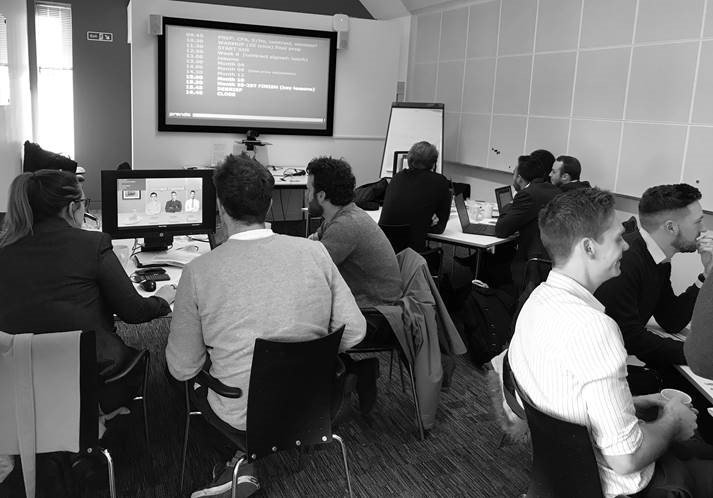Developing Complex Project Management Capabilities – Systems Thinking & Advanced Simulations
- With high failure rates and with so much at stake in delivering complex projects, the value to organisations of improving their complex project management capabilities is evident.
- Whilst great efforts have been made to capture and articulate “knowledge” about the management of projects, this knowledge has historically focused on the explicit and procedural skills that are only a part of what is required to manage complex projects.
- Complex projects involve making numerous difficult decisions and judgements where often there is no right answer. Managers of complex projects thus require skills that are primarily tacit.
Managers of complex projects need to be capable of:
- juggling a mix of technical, business and human challenges simultaneously, and taking a holistic view
- influencing others and balancing conflicting stakeholder interests
- defining what ‘success’ is: reconciling time-cost-quality vs benefits realisation and meeting client expectations; striking a balance between short-term gain and long-term organisational and social goals
- judging the trade-offs when defining and changing the scope, deciding on a contract, making resource choices, managing risks and evaluating business outcomes
- applying intuition, emotional intelligence and empathy
- building relationships and maintaining trust
- dealing with ambiguity, uncertainty, risk and unknown unknowns
- working with long timescales and evolving objectives, constraints and environments
- However, efforts to create knowledge resources to help managers develop skills in managing complex projects are in their infancy.
Books, research papers, training courses and decision support tools have only recently begun to address the needs of complex project managers.
- Even for ‘simple’ projects, extensive knowledge resources are not ensuring success, because there is a “Knowing-Doing Gap”¹; wisdom is not always being translated into practice.
Project learning reviews consistently produce the same list of reasons for problems and failure. The fact that project managers keep making the same mistakes implies that there is too much emphasis on research and gathering wisdom, reading the wisdom and listening to experts talk about the wisdom, and not enough emphasis on how to ensure that practitioners actually apply the wisdom. We know what we should do to manage risks effectively; the challenge lies in actually doing it.
“One of the most important insights from our research is that knowledge that is actually implemented is much more likely to be acquired from learning by doing than from learning by reading, listening or even thinking.”
Jeffrey Pfeffer, Robert Sutton
1 The Knowing-Doing Gap: How Smart Companies Turn Knowledge into Action (Harvard Business School Press 1999)
- However, learning by doing (i.e. by experience) is expensive, and can actually be ineffective as a learning method.
To learn by doing, project managers have to use their real projects as their practice grounds. Accordingly, the learning-by-doing process can be very expensive. Moreover, projects are likely to take place over long periods of time, and numerous factors contribute to the final outcomes, so it can be hard to “see” cause and effect. Experience accordingly does not always ensure learning.
“We learn best from experience, but we never directly experience the consequences of many of our most important decisions.”
Peter Senge
- A complex project is a dynamic system, and written documents (e.g. articles, papers, books, reports) have limitations for helping people understand systems.
Complex projects are difficult to describe and understand using words. Not only do they involve a detailed technical dimension, they also involve human behaviour, political, economic and financial variables that are all connected and changing constantly. Linear books and papers (including this one!), are not ideal for explaining such dynamic systems, even if every paragraph is cross-referenced. Breaking the content down into chapters is inconsistent with the complex interdependencies.
The human brain did not evolve to manage non-linear multi-loop feedback systems where decisions, numerous other factors, inputs and outcomes unfold over long timescales.
So project managers need help in seeing projects as complex adaptive systems, help in seeing and dealing with the unforeseen consequences of their actions, and help in dealing with projects holistically.
“The human mind is not adapted to interpreting how social systems behave.”
Jay W. Forrester
- In many disciplines based on complex systems, simulations are used for performance improvement, generating insight and decision-support.
Pilots, surgeons and soldiers have all long understood the importance of practising their activities in order to improve their performance and reduce the risk of failure in the real world. Flight simulators, cadavers and battlefield simulators are all essential tools for applying the most basic principle of performance improvement: the need to test, practise, and perform ‘dry-runs’. Flight simulators give pilots a chance to practice in high stress situations, and receive comprehensive feedback on how their actions determined the outcomes. In many respects, they are actually better than real planes for learning to fly, and the widespread use of such effective learning tools is surely a contributing factor to the excellent ‘success rate’ of the modern aviation industry. Engineers use prototypes and wind tunnels (both real and virtual) to optimise the design of cars. Pharmacologists use sophisticated physiology simulations to test new therapies. Outside the business world, the concept of using simulations not only to develop skills and build understanding, but also to plan specific courses of action, is well established.
“Our understanding of physical systems is still far more advanced than our understanding of social, corporate, governmental, and economic systems.”
Jay W. Forrester
- Like pilots and soldiers, managers of complex projects need to learn through transparent experience, and the most efficient way to do so is with sophisticated simulations of complex projects.
The tacit skills needed for dealing with situations in complex projects where there aren’t necessarily any right answers are best developed through transparent experience, in which participants take decisions, see the outcomes of these decisions and discover the causal links between the two. Participants thus complement the knowledge acquired using traditional methods, by putting theory into practice, and making mistakes in the safety of a simulated environment.
To enable this transparent experience, sophisticated project simulations that model the key human, technical and financial variables and replicate the key decision-making challenges during complex projects are needed. Like flight simulators, they provide an immersive, realistic environment, in which what happens can be explained and understood.
By giving participants compressed and transparent project management experiences and the chance to ‘live’ and visualise the sorts of decisions, issues and outcomes they are about to encounter in the real world, these simulations can provide efficient and effective performance improvement opportunities. Customised simulations can be used to encourage the gathering and sharing of project specific know-how and even allow the development of foresight into what could happen, via a ‘pre-mortem’.
Author: Alastair Giffin
Simulations are the future of business education
Simulations are the future of business education

